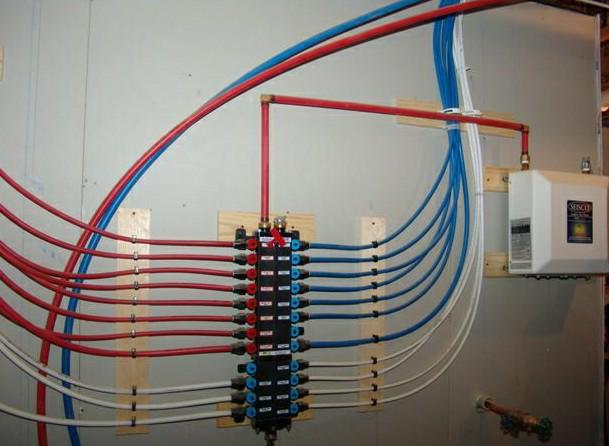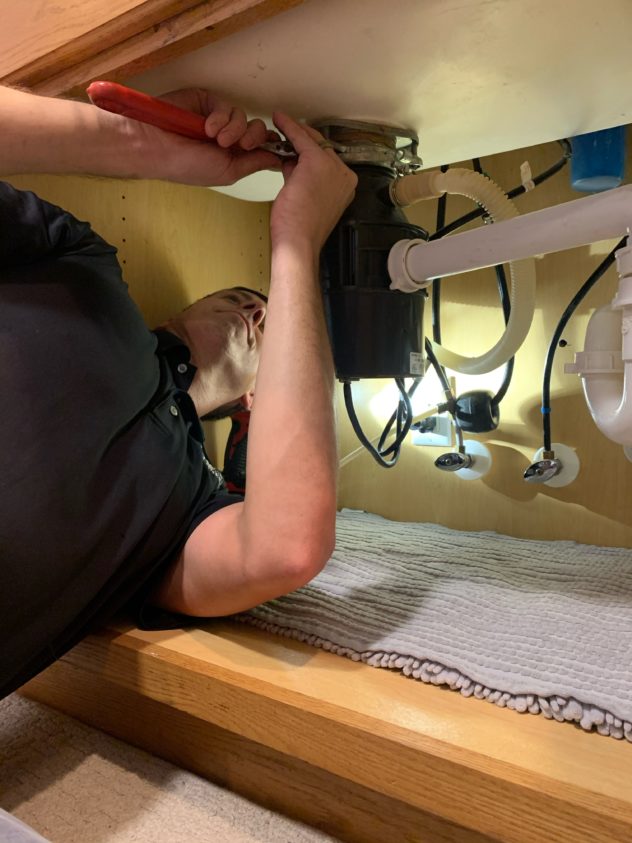So Your House Needs to be Repiped, What's Involved in This Process?

After you have a leak or two spring up in your house, it is probably time to get your house repiped. The focus of this article is to give you a general overview of what is involved in a home repipe. We will go over how to hire a reliable plumber all the way to the damages and modifications that might be necessary to complete the job. In this article, we will mainly be going over a water line replacement instead of a sewer line replacement.
Luckily, for most home-owners, this is a one-time deal repipe’s often lasts a lifetime.
Hiring a Reliable Plumbing Company
Choosing what plumbing company to go with for your repipe is arguably one of the most crucial steps in getting your house repiped. Making sure that they are honest, reliable, and experienced will all factor in creating a pleasant repiping experience for you and your home.
- Get referrals
- Get multiple quotes
- Research each company
Getting referrals is an excellent way to create a list of potential plumbers; talking to friends and family can help you find trusted professionals. You can also look at your local chamber of commerce or look at the Better Business Bureau to find companies.
After selecting 3-5 companies, it's crucial to read their past reviews and to check their standing with the BBB. Also, checking their license status and years in business are all good ways to gauge whether the company will be a good fit.
Once you get a couple of quotes in your hands, try to avoid gravitating towards the lowest price. Going cheap invites people who cut corners and who might do a poor job.

Cost for a Repipe
For the average residential home, you can usually expect to pay from $2,000 - $5,000. Again, this is just a rough estimate; location and the size of the home will play a huge factor in determining the final price.
Getting 3-5 quotes will help you get a sense of what you can expect to pay. Make sure to compare what will be covered in each estimate too, and don't be afraid to ask questions or ask for clarity on specific items on each quote.
- Permits
- Location
- Time constraints
- Plumbing company
- Number of Bathrooms
- Type of pipe being installed
- Number of Plumbing fixtures
These will all factor in the final cost of the home repipe.
A personal word of advice would be to look for a plumbing company that installs Pex/Uponor piping. Pex/Uponor helps to shorten installation times, reducing the work hours necessary for each job. Pex/Uponor has allowed plumbing companies I’ve worked for to be more competitive on pricing. Pex/Uponor is reliable; I prefer it over other types of pipe installations. I’ve also found that installing the pipe reduces the amount of damage done to the home and drywall.
Types of Pipes
Depending on which company you choose, they will most likely have their systems for repiping a home. The three most common pipes plumbers use are Pex/Uponor, CPVC, and Copper.
Copper
Copper has been a staple in home plumbing. There is nothing wrong with getting your house repiped in copper. The main issue is the cost when installing it. It's harder to work with and does not have the flexibility that other pipes have; however, it will still stand the test of time and go toe to toe with other types of pipe installations.
CPVC
CPVC is a good alternative, as well. It's cost-efficient and easy to work with. Many plumbing companies install CPVC to create a win for the company and their customers by allowing cheaper and faster installations. The only issue I have with CPVC is that it's more prone to bursting than other pipes.
Pex/Uponor
Pex/Uponor is a flexible, durable pipe used in water line replacement and installation. Pex/Uponor carries the benefits of CPVC and is just as reliable as copper. Not only is it cheaper, but I find that it can minimize holes in the drywall due to its flexible nature. Flexible pipe makes it so you don't have to tear the house apart as much as the other pipes.
Damages Your Home Will Incur
Other than the cost, damages to the home are always something to consider when repiping a home. Creating holes in the drywall is necessary to connect onto plumbing fixtures. Dealing with bathrooms in specific can present their own set of issues. Working around pre-existing tiles and preserving them is a top priority.
Having an experienced plumber will come into play when planning on how to make connections. They will usually be able to find the most efficient way to plumbing fixtures while also minimizing damages. Repairing drywall is not nearly as burdensome as replacing bathroom tile.
Considerations:
- Tile
- Concrete
- Drywall
- Cabinets
Additionally, you should also expect the plumber to have to core some holes into the home's walls. Repairing small concrete holes is not difficult and can be done by picking up some mix from your local hardware store.
Average Timeline
The average time to repipe a residential home should take 2- 3 days. Usually, a plumbing company will have 2-3 people working on a home repipe; most residential homes take about 2-3 days. It helps to imagine the process in 3 phases.
First phase:
Sourcing the materials and getting them all on-site. Next, plumbers will take a walk through the house and get a sense of the layout. Walkthroughs help develop an understanding of all the material needed and determining where incisions are necessary. Additionally, placing plastic wrap on furniture and floors will help deter damages.
Second Phase:
In this phase, you should expect most of the hard work to happen. Running pipes to the proper locations along with connecting them to existing plumbing fixtures will take the most time. Expect most of the demolition and hole cutting to happen in this phase.
Third Phase:
In the last phase, you can expect your plumber to get everything wrapped up. Your plumbers will go through and clean around all the spots where they worked. They usually check every joint and make sure the water is tested and not leaking. Furthermore, making sure everything looks the way it should, like putting on escutcheons and strapping the pipes to make them look neater.
Benefits of a Repipe
Having your home repiped is an essential part of future proof of the longevity of your home. You won't have to deal with emergency plumbing leaks and all the expense that comes along with that. Other benefits to having your home repiped are cleaner drinking water and higher water pressure.
Conclusion
Getting your house repiped ensures reliable plumbing for years to come. The two most important things involved in the repiping process is to find a reliable plumbing company and get a couple of quotes. These two ensure that you’ll be getting the best value for your house repipe.
